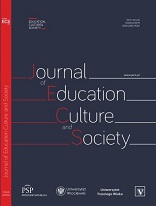CRITICAL THINKING EMBEDDEDNESS IN HIGHER EDUCATION PROGRAMMES
CRITICAL THINKING EMBEDDEDNESS IN HIGHER EDUCATION PROGRAMMES
Author(s): Natalija Valavičienė, Daiva Penkauskienė, Jolanta Pivorienė, Asta Railienė, Odeta Merfeldaitė, Justinas Sadauskas, Violeta Jegelevičienė, Valdonė IndrašienėSubject(s): Social Sciences, Education, Higher Education
Published by: Fundacja Pro Scientia Publica
Keywords: critical thinking;skills;dispositions;study programmes
Summary/Abstract: Aim. The aim of this research is to examine how critical thinking is reflected in Lithuanian higher education study programmes and what conceptual model(s) of critical thinking are used by study programme makers. Methods. The subject of the study encompasses 8 higher education study programmes and their subjects. They are analysed based on a constructed conceptual framework, which defines 9 critical thinking skills and 18 critical thinking dispositions. Results. Analysis, evaluation and decision making are the most common critical thinking skills embedded in the goals of a study course and its learning outcomes. Explanation, interpretation and making inferences are less pronounced. Dispositions are listed rarely and in quite an indistinct way. Only open-mindedness and honesty have clear expression and statement in study programmes, though to a lesser extent. Dispositions such as concern for every person, inquisitiveness and flexibility are very fragmented. Conclusions. For the meantime, critical thinking is neither reflected equally and coherently in all parts of study programmes – course goals, content, described methods and learning outcomes – nor clear conceptual models of critical thinking can be detected. Research restrictions. The policy of the colleges and universities on providing the descriptions of study programmes and syllabuses publicly, limits their accessibility. Due to the sampling of study programmes, the research represents only selected study programmes. Practical application. The created framework may be used to study programmes’ development by introducing the defined critical thinking skills in the descriptions of the study programmes more systematically.
Journal: The Journal of Education, Culture, and Society
- Issue Year: 11/2020
- Issue No: 2
- Page Range: 121-132
- Page Count: 12
- Language: English

